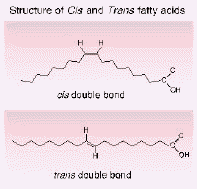
| HOME | Previous Columns | Email Contacts | Advertising |
Public Health
Nutrition experts and dietary specialists from around the world gathered in Cambridge in late January to update dietary guidelines and ruminate on the current role of fat in the diet. Trans fatty acids--superseding cholesterol as the nutritional archculprit--emerged as the new buzz word.
The 1998 International Conference on the Mediterranean Diet, organized by Oldways Preservation and Exchange Trust and the Harvard School of Public Health, provided an opportunity to review new data on dietary fats. At issue were two conflicting messages that nutritional scientists have conveyed to the public, said Frank Sacks, associate professor of medicine at BWH and associate professor of nutrition at HSPH.
The predominant view in North America has been that all types of fat are bad--reduce them as much as possible. European dietary organizations, however, have largely believed that some fats are bad, but others are good--substitute the good for the bad.
"We wanted to get to the root of how these two views developed and see if there was some common ground to unify them," said Sacks.
The task facing conference participants was to analyze the current scientific evidence on dietary fat and formulate a public statement summarizing the experts' advice. "If there's a consensus among nutrition scientists, then it's very clear how to proceed," said Oldways president K. Dun Gifford. Specific dietary topics were discussed by subgroups and dietary guidelines were formulated that placed the science in a social and culinary context accessible to the public.
"I had the easiest job as moderator of the panel on trans fatty acids," said Meir Stampfer, professor of epidemiology and nutrition at the Harvard School of Public Health. Representatives from every important group involved in trans fatty acid research were at the conference, and although there was some disagreement on the fine details, there was a unified view on the adverse effects of these acids on HDL (high density lipoprotein) and LDL (low density lipoprotein), said Stampfer.
The panel recommended that the intake of trans fatty acids be minimized, with the aim of eliminating them from the diet. These unsaturated fatty acids, characterized by an unusual configuration of hydrogen atoms (see figure), are formed during the partial hydrogenation (hardening) of vegetable oils to produce margarines and shortenings. Up to 32 percent of the fatty acids in full-fat margarines can be trans fatty acids. Biohydrogenation in the rumen of cows and sheep also creates trans fatty acids in meat and dairy products, which can account for 3 to 8 percent of their fatty acids.

Dietary fatty acids that contain at least one carbon double bond are called unsaturated fatty acids because they are able to add more hydrogen atoms. The most common arrangement of double bonds is the side-by-side (cis) configuration; however, unsaturated fatty acids in which the hydrogen atoms are across from one another (trans) can be created. Fatty acids with this unusual geometric configuration are called trans fatty acids.
According to the official consensus statement, "Partially-hydrogenated fats rich in trans fatty acids have adverse effects on the cholesterol profile, may exert other adverse effects, and have no counterbalancing nutritional benefit." Stampfer and his colleagues also suggested labeling changes to inform consumers of the trans fatty acid content in the foods they consume, including take-out and restaurant foods.
The nutrition experts also reached consensus on total dietary fat and overall dietary pattern. They agreed that positive health effects are gained from diets that are high in fruits, vegetables, legumes, and whole grains, as well as fish, nuts, and low-fat dairy products. Such diets need not be restricted in total fat as long as there is no calorie excess and saturated fats are kept to a minimum.
The more vexing questions, however, concerning the associations between diet and cancer or heart disease, remain unresolved. In both of these areas, the scientific evidence is inconclusive, and there are conflicting results from animal model and human population studies. Nevertheless, a "Mediterranean" diet, low in saturated fats and high in monounsaturated fats such as olive oil, is still considered to be beneficial. "It's inevitable that there can't be full consensus on all subjects because science is always evolving. But the best message we can give today is this one," said Gifford.
The last word goes to obesity. Once again the experts were unable to reach a conclusion on the specific contribution of fats and carbohydrates, but they agreed on one thing: too many of us are morbidly overweight. "Obesity is the number one public health problem in the U.S.," said John Foreyt of Baylor University. "The bottom-line is portion sizes are enormous; we're eating too many calories and we're not active."
--Kristin Weidenbach
| READ DL Dewey's Previous Column Hydrogenated Oils Are Silent Killers |
| HOME | Previous Columns | Email Contacts | Advertising |
|
©1997 - 2005 DL DEWEY Updated January 1st, 2005 Email Contacts |